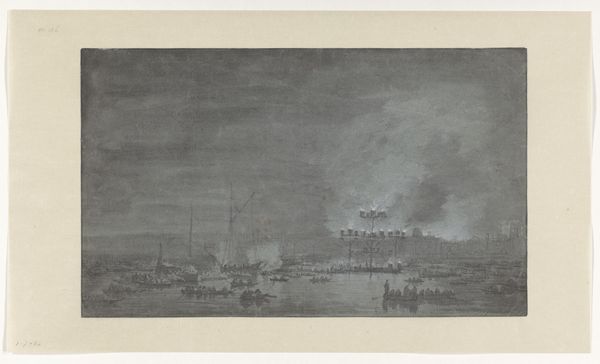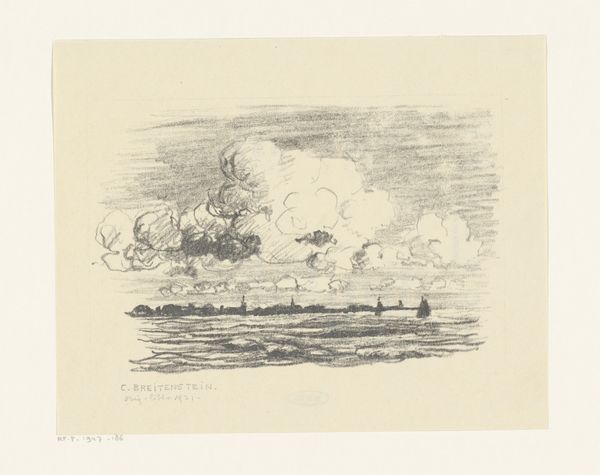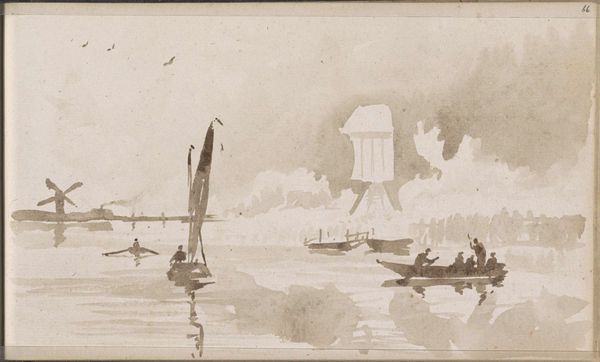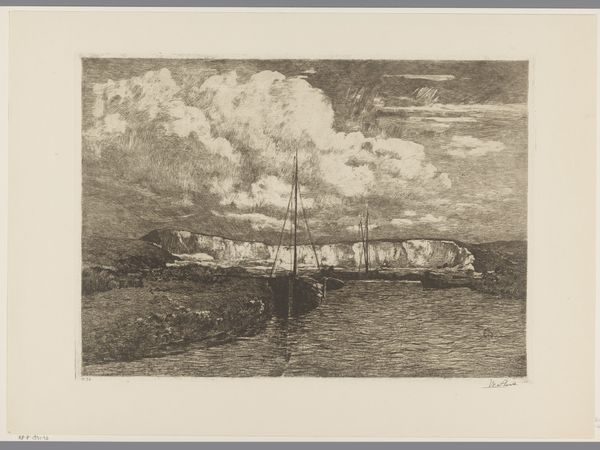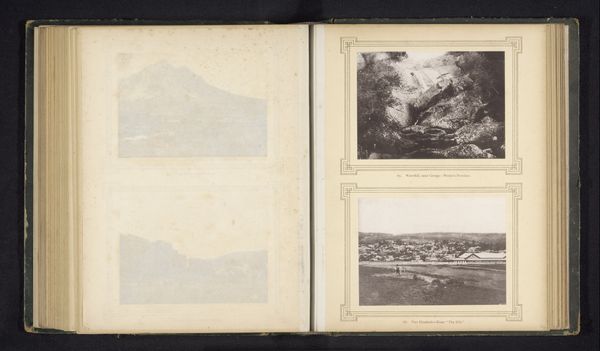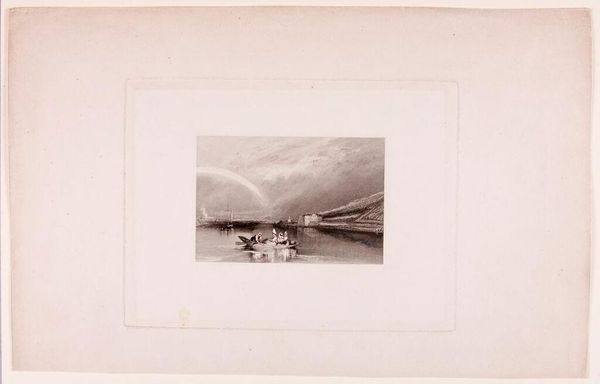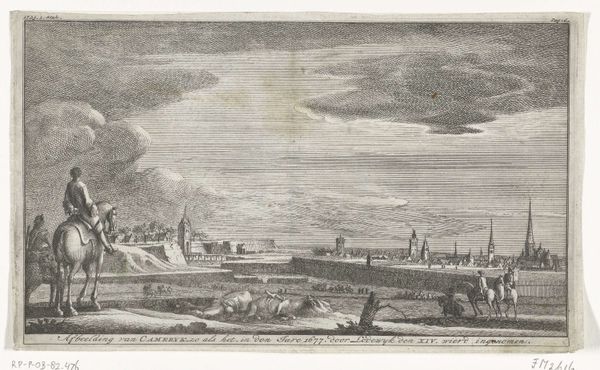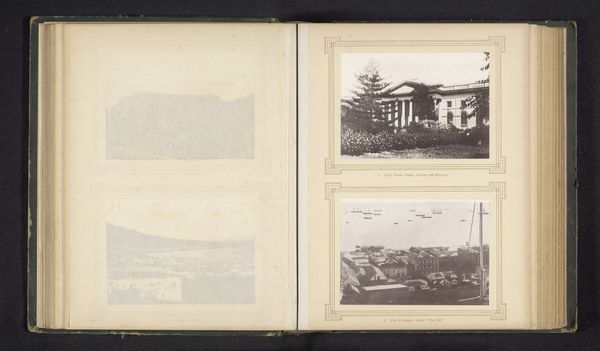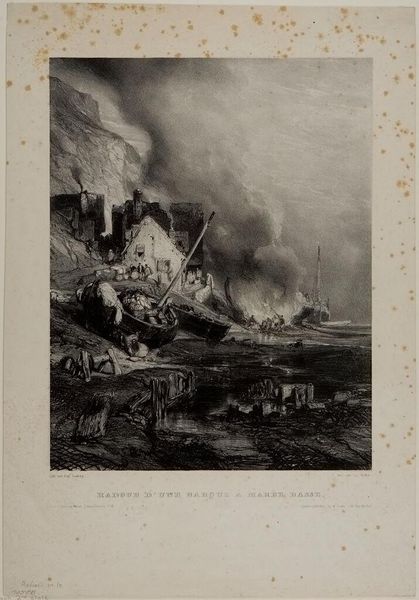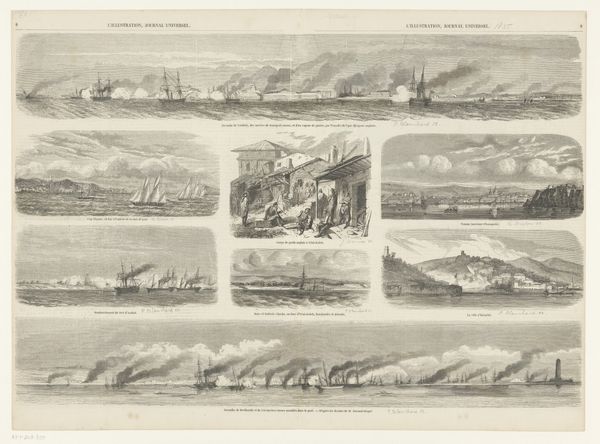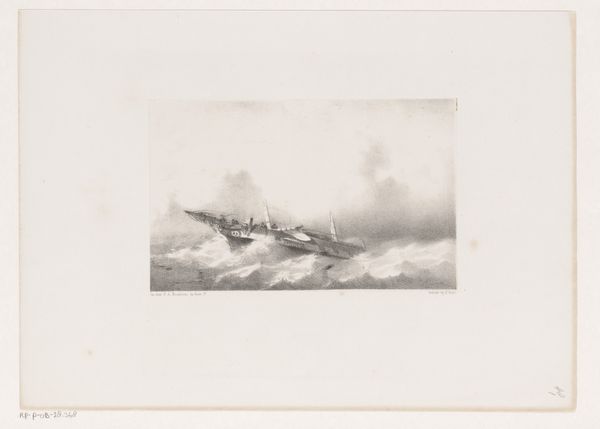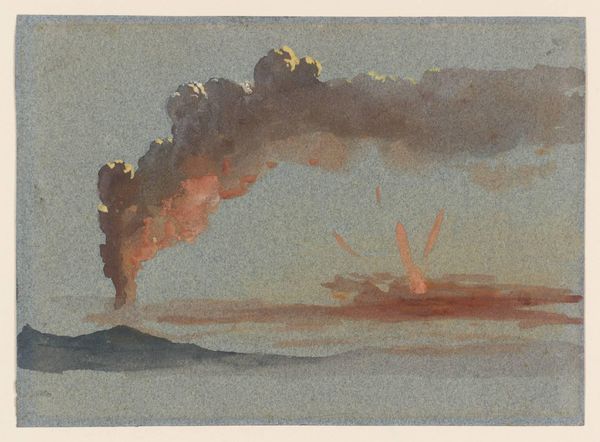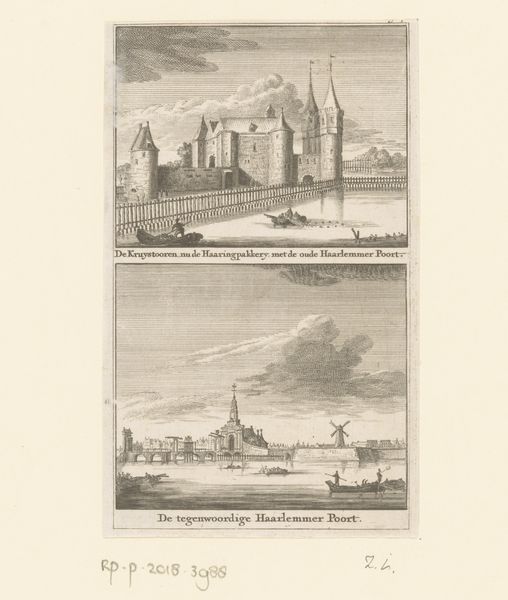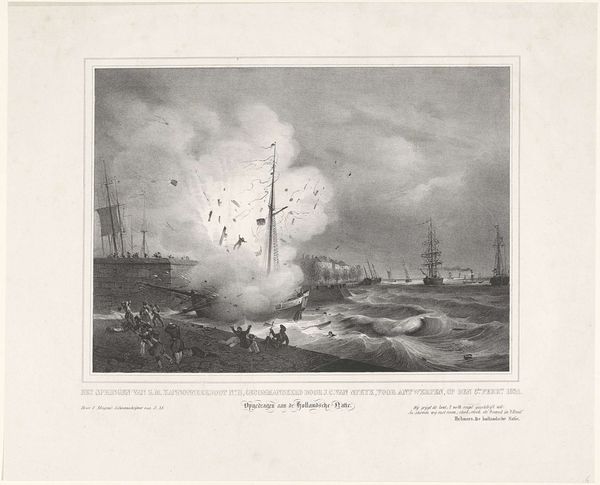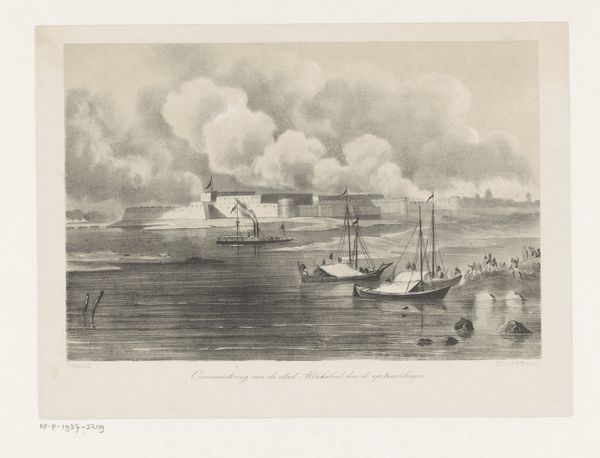
Fotoreproductie van een tekening van een uitbarsting van de Vesuvius in 1861 c. 1860 - 1880
0:00
0:00
giorgiosommer
Rijksmuseum
Dimensions: height 84 mm, width 174 mm
Copyright: Rijks Museum: Open Domain
Giorgio Sommer created this photographic reproduction of the Vesuvius eruption drawing in 1861, capturing a moment of both terror and awe. The volcano, a symbol of raw, untamed power, dominates the scene. We've seen such eruptions depicted throughout history, from ancient Roman frescoes of Vesuvius burying Pompeii to Turner's fiery landscapes. The volcano embodies destruction but also creation, a force that reshapes the world. In antiquity, volcanoes were seen as manifestations of the gods; indeed, they are reminders of our fragility and the sublime indifference of nature. Notice how the observers in the foreground are dwarfed, rendered insignificant against the backdrop of this primal event. This contrast speaks to the enduring human fascination with catastrophic events. The image of Vesuvius erupting is an unforgettable symbol, a stark reminder of the cyclical nature of destruction and rebirth. It echoes through art history, appearing in diverse cultural contexts, each time colored by the fears and fascinations of the era.
Comments
No comments
Be the first to comment and join the conversation on the ultimate creative platform.
